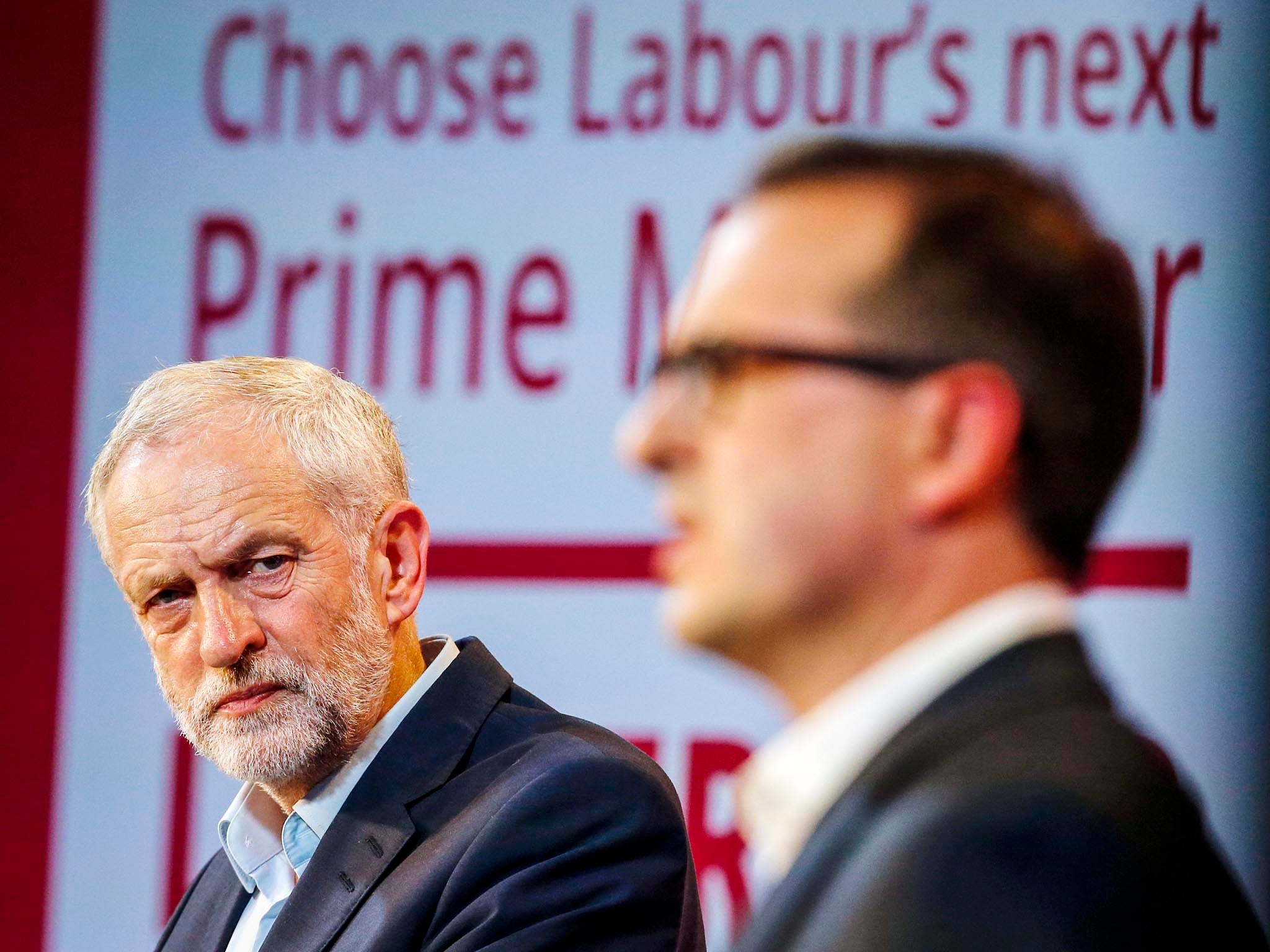It doesn’t matter if Owen Smith or Jeremy Corbyn is at the helm - electoral defeat for Labour is inevitable
Mr Smith’s appeal is based on him being a better salesman for leftist ideas than the present incumbent; but that is of little value if the policies themselves, and the party’s general image, are unpalatable

Perhaps the saddest truth about the Labour leadership election is that the largest exercise in internal party democracy ever seen in this country should be to such little effect.
No matter who wins in the ballot that is now officially open, the deep wounds that have already been inflicted by the Labour movement on itself are unlikely to heal by the next election. Indeed, there is every possibility that the defeated camp will refuse to accept the result, undermining the legitimacy of the poll and, more to the point, will organise fresh resistance and a renewed leadership challenge. One of Jeremy Corbyn’s great political friends and mentors, Tony Benn, who fomented his fair share of division, used to say that elections are a “healing process”. That didn’t carry much weight in Mr Benn’s time, and it carries none today.
What’s more, whoever wins this contest faces that familiar political metaphor, the “mountain to climb” to victory at the next election. Quite apart from a tragically divided party, Owen Smith or Jeremy Corbyn will face a constituency boundary review that will automatically favour the Tories. A resurgent Theresa May Government, as well as a resilient Scottish National Party, which did so much damage to Labour’s standing there at the general election only a little over a year ago, will constitute determined enemies. Even the Liberal Democrats could stage a revival. Like it or not, Labour under either Mr Corbyn or Mr Smith will also face a hostile press. So, not an easy gig.
It is true that Mr Corbyn’s electoral appeal has not been as dismal as is sometimes made out by the media. About a third of the national support in polling and local elections, plus some notable wins in mayoral contests and by-elections, ought not be discounted. Nor can the enthusiasm he generates among people hitherto apathetic or disenchanted about politics be dismissed. He is a man of principle, and his supporters are right to contrast his approach with that of, say, Tony Blair, the arch-triangulator.
The hard fact remains, however, that Mr Corbyn is about 10 points behind the Conservatives in the polls, and, as Sadiq Khan and Kezia Dugdale, leaders of the party in London and Scotland respectively, are the latest to point out, he has neither the policies, the strategy nor the personal skills to win back the voters Labour has lost since they last won a general election back in 2005. The voters’ perceptions may be wrong, but the traditional Labour weakness of being distrusted on running the economy is once again the party’s fundamental vulnerability. Labour should now be way ahead of the Tories – but they aren’t.
Of course, there is a fair amount of unfairness in this. Shadow Chancellor John McDonnell has often been on the correct side of the arguments about austerity, and, before long, his Conservative counterpart will be announcing a Budget that, in some respects, could have been written by Mr McDonnell, though Philip Hammond would hate to admit it. Putting off the target for a balanced budget, increasing infrastructure investment and, in simple terms, printing money, are all measures that Mr Corbyn’s Labour Party advocated before the Tories had been pushed into a corner, or, more accurately, pushed themselves into a corner, after the Brexit vote. Mr McDonnell and Mr Corbyn also helped defeat the Government’s changes to tax credits and social security for people with disabilities, and should be congratulated for that.
Nonetheless, the voters know where Mr Corbyn and Mr McDonnell are coming from – the Labour Party of the 1970s and 1980s – and they have sufficient knowledge or experience of that not to wish to see those days return. The voters view increased union power and higher taxation as anathema. Labour has rarely prospered by ignoring that.
The problem is that Mr Smith’s policies, as he himself says, are scarcely distinguishable from the pacifistic Mr Corbyn’s, except on nuclear defence (though, by contrast, Mr Smith outflanks Mr Corbyn in wanting to talk to Isis. Mr Smith’s appeal is based on him being a better salesman for leftist ideas than the present incumbent; but that is of little value if the policies themselves, and the party’s general image, are unpalatable, notwithstanding that the public might approve of particular ideas, or that the Government happens to agree.
Alternatively, Mr Smith is a sort of born-again Neil Kinnock, who will win the leadership on a left-wing ticket, but, undeclared, will then proceed, slowly and painfully, to drag the party towards the political centre. That would mean Mr Smith, like Mr Kinnock before him, having to endure years engaged in an internal war of attrition and accusations of betrayal, and, like Mr Kinnock, in the end not even persuading the British people that he believes in what he is trying to tell them.
The choice, then, for Labour members is between the “real thing”, who has very little chance of taking them back into power; or a (slightly) more persuasive, (potentially) more pragmatic and (arguably) more glamorous leader, who has not much more chance of taking them into government. From this distance, it’s understandable that the passion, and occasional violence, the contest generates within the Labour movement, large as it now is, is mirrored by the utter indifference displayed by most of the wider public.
Join our commenting forum
Join thought-provoking conversations, follow other Independent readers and see their replies
Comments
Bookmark popover
Removed from bookmarks